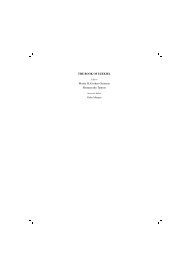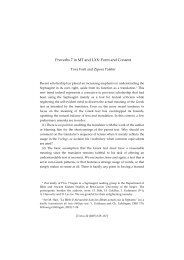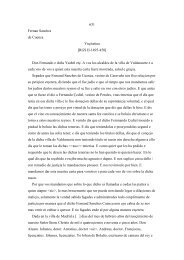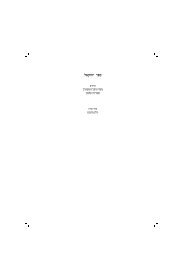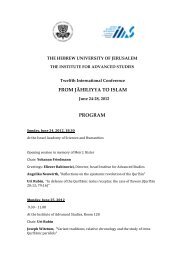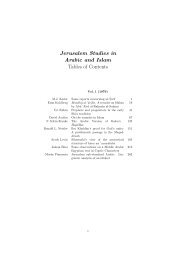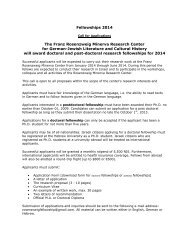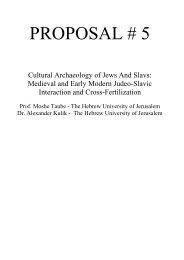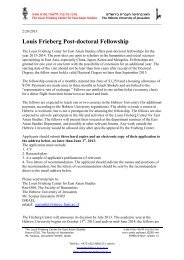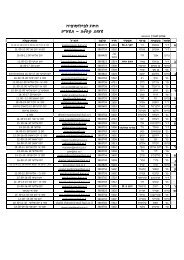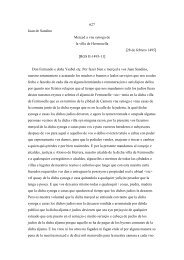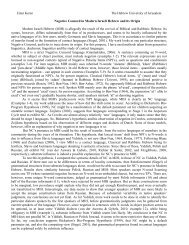Baber Johansen
Baber Johansen
Baber Johansen
Create successful ePaper yourself
Turn your PDF publications into a flip-book with our unique Google optimized e-Paper software.
20<br />
common ground for social morality when he assigns to all members of<br />
society the capacity to perform acts that strengthen its cohesion.<br />
The discussion of the ritual, ethical and legal classification of acts did, of<br />
course, not end with the authors of the pre-Mamluk and early Mamluk<br />
period. The widely-read seventeenth-century dictionary of legal and<br />
theological terms, al-KulliyyÁt, authored by KaffawÐ (1619-1684), a<br />
Íanafī jurist who served as qÁÃÐ of Istanbul and Jerusalem under the<br />
Ottomans, discusses the relationship between acts of worship, acts of<br />
obedience, and acts that bring closer to God. KaffawÐ states: "The act that<br />
constitutes nearness to God (qurba) is more specific than the act of<br />
obedience (ÔÁÝa) if one takes into consideration the cognition of the one<br />
whose nearness one searches (maÝrifat al-mutaqarrab ilaihi fÐhÁ). The act<br />
of worship (ÝibÁda) is more specific than both [i.e. than the act of coming<br />
closer to God and the act of obedience] because in it the intent (niyya) [to<br />
perform a specific act of worship in order to come closer to God] is taken<br />
into account."<br />
The hierarchy established in this sentence is based on the knowledge of<br />
God and the intent of coming closer to Him. The most specific notion is<br />
that of the act of cult because the intent to perform it is based on a<br />
specification of the act to be performed and of the divine authority in<br />
whose name it is performed. The second rank is assigned to acts with a<br />
qurba-function: though the act is not specified, the actor knows that he<br />
performs it in order to come closer to God. The act of obedience ranks<br />
third. It indicates the willingness to follow the law and the actor loses<br />
her/his capacity to perform it through the act of apostasy. 69<br />
The discussion of the relation between the act of worship, the effort to<br />
come closer to God through acts with qurba-functions, and the act of<br />
obedience is continued in the nineteenth century. Ibn ÝÀbidÐn (d. 1836 or<br />
1842), a widely-read and -discussed Damascene jurist of the Íanafī<br />
school of law, defines qurba in the following terms:<br />
That which brings closer to God (qurba) is the performance of an<br />
act that is rewarded [by God] after he [the actor] knows to whom



